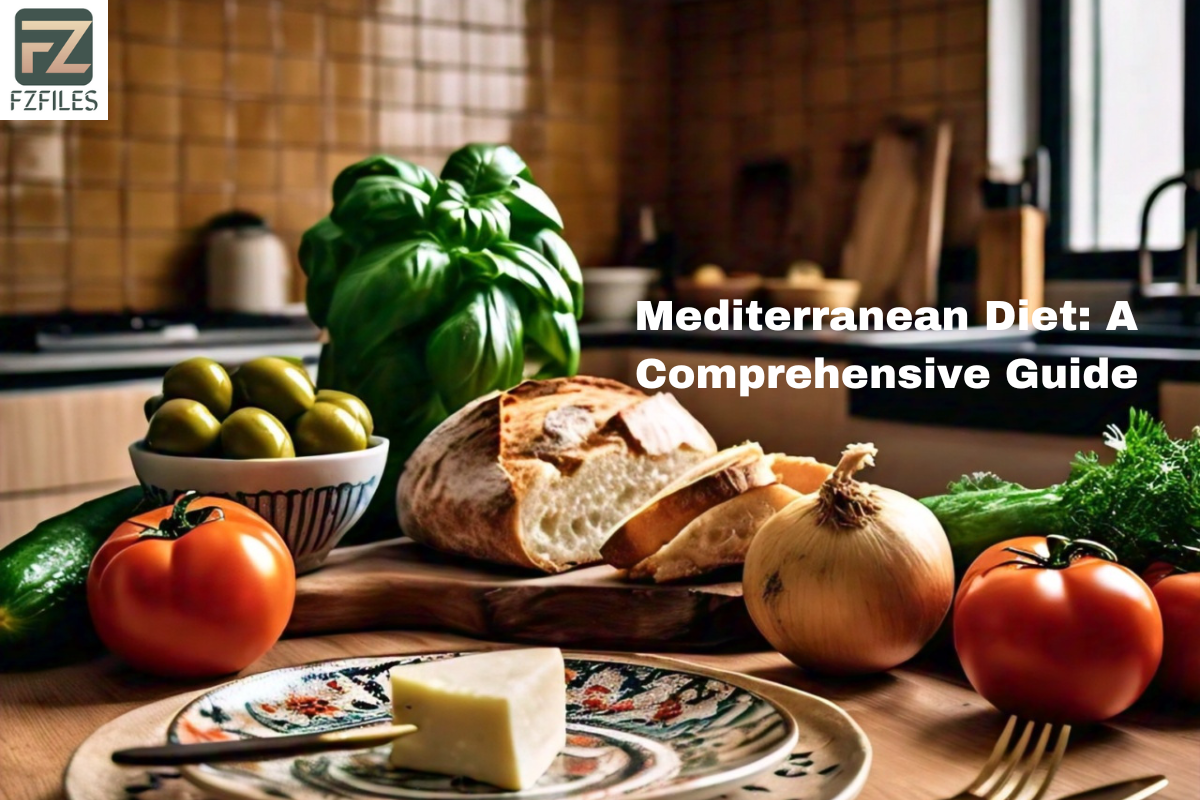Introduction
Are you looking for a healthy and sustainable way to improve your overall health and well-being? Do you want to reduce your risk of chronic diseases and feel more energetic and focused throughout the day? Look no further than the Mediterranean diet! This healthy eating pattern has been widely recognized for its numerous health benefits, including weight loss, improved heart health, and reduced risk of chronic diseases.
In this comprehensive guide, we will delve into the benefits of the Mediterranean diet, the foods to eat and avoid, and provide a sample meal plan to get you started. Whether you’re a busy professional or a stay-at-home parent, this diet is easy to follow and can be tailored to fit your lifestyle. So, let’s dive in and explore the power of the Mediterranean diet!
Benefits of the Mediterranean Diet
The Mediterranean diet has numerous health benefits, including ¹ ² ³:
- Improved heart health: The diet is recommended for heart health, as it can help lower blood pressure and cholesterol levels.
- Anti-inflammatory benefits: The diet has anti-inflammatory properties that can protect against diseases like heart disease and COVID-19.
- Reduced dementia risk: Consuming a diet rich in fruits, vegetables, whole grains, and fish, and low in red meat and saturated fats can help protect the brain from cognitive decline.
- Anti-cancer benefits: Lycopene, lutein, α-carotene, and β-carotene, found in Mediterranean diet foods, can help reduce inflammation and oxidative damage in the body, associated with an increased risk of cancer.
- Weight loss: The diet can help manage your weight.
- Improved telomere length: The antioxidants in the Mediterranean diet can help combat cell stress and preserve telomere length, which can predict life expectancy and the risk of developing age-related diseases.

More benefits
- Reduced risk of type 2 diabetes: The Mediterranean diet can help regulate blood sugar levels and improve insulin sensitivity.
- Reduced risk of cardiovascular disease: The diet can help lower the risk of cardiovascular disease and premature death.
- Improved immune function: The Mediterranean diet is high in fruits, vegetables, legumes, whole grains, and nuts, which are rich in antioxidants, vitamins, minerals, and fiber, and can help boost the immune system.
- Better gut health: The Mediterranean diet can help improve the gut microbiome, which is the basis for diseases like diabetes and heart disease.
- Lower risk of depression: The Mediterranean diet may have more mental health benefits, as the participants who followed the diet reported better quality of life than the group that received befriending therapy.
- Lower risk of age-related macular degeneration: The Mediterranean diet may be recommended for age-related macular degeneration, as the participants who followed the diet were associated with a lower risk of macular degeneration.
Foods to Eat and Avoid
This diet is characterized by a high intake of whole grains, fruits, vegetables, lean protein, and healthy fats. Some key foods to include in your diet are:
- Entire grains like earthy colored rice, quinoa, and entire wheat bread
- Fresh fruits and vegetables such as leafy greens, citrus fruits, and tomatoes
- Lean protein sources such as chicken, fish, and legumes
- Healthy fats such as olive oil, avocado, and nuts
- Sound fats like olive oil, avocado, and nuts
Then again, it’s critical to restrict or stay away from:
- Handled meats like red meat and wieners
- Refined starches like white bread and sweet bites
Sample Meal Plan
Here’s a sample meal plan to get you started on the Mediterranean diet:
- Breakfast: Greek yogurt with berries and walnuts
- Lunch: Barbecued chicken serving of mixed greens with blended greens, cherry tomatoes, and olive oil
- Dinner: Prepared salmon with simmered vegetables and quinoa
Conclusion
In conclusion, the Mediterranean diet is a powerful tool for improving overall health and well-being. With its emphasis on whole grains, fruits, vegetables, lean protein, and healthy fats, this diet provides numerous health benefits, including weight loss, improved heart health, and reduced risk of chronic diseases. By incorporating the plant-based diet into your lifestyle, you can feel more energetic and focused, improve your mental health, and reduce your risk of chronic diseases. Keep in mind, that it’s not only an eating routine, it’s a way of life! So, start your journey today and experience the benefits of the Mediterranean diet for yourself!
Final Thoughts
- The Mediterranean diet is a healthy eating pattern that emphasizes whole grains, fruits, vegetables, lean protein, and healthy fats.
- This diet has numerous health benefits, including weight loss, improved heart health, and reduced risk of chronic diseases.
- By incorporating the plant-based diet into your lifestyle, you can feel more energetic and focused, improve your mental health, and reduce your risk of chronic diseases.
- Keep in mind, that it’s not only an eating routine, it’s a way of life!
Call to Action
- Start your journey today and experience the benefits of the Mediterranean diet for yourself!
- Share this article with your friends and family and help them improve their health and well-being.
- Leave a comment below and let us know your thoughts on the Mediterranean diet.
open link

[…] high-fat diet that has been gaining popularity recently due to its numerous health benefits. The diet aims to put the body into a state of ketosis, where the body burns fat for energy instead of […]